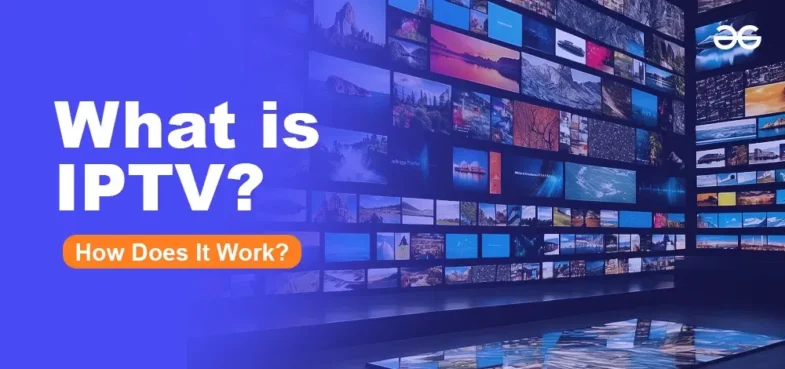In today’s digital age, how we consume television and media has evolved significantly. One of the most transformative innovations in this realm is Iptv France or Internet Protocol Television. This technology is reshaping how we access, watch, and interact with television content. But what exactly is IPTV, and why has it gained such popularity? In this article, we will explore the origins, benefits, challenges, and future prospects of IPTV.
What is IPTV?
IPTV stands for Internet Protocol Television, a system that delivers television content over the internet using IP networks. Unlike traditional broadcasting methods such as satellite, cable, or terrestrial transmission, IPTV streams video content via the internet, allowing users to access a wide range of television channels and on-demand media.
In essence, IPTV is a digital service that transforms conventional TV into a more flexible and user-centric experience. By leveraging broadband connections, IPTV offers viewers a more dynamic way to watch television, giving them access to a vast array of programming whenever and wherever they want.
How Does IPTV Work?
The core technology behind IPTV is based on the Internet Protocol (IP), a communications protocol that transmits data over a network. With IPTV, content is transmitted through broadband internet connections to a device, such as a set-top box, smart TV, computer, or smartphone. This data is delivered in a compressed digital format, allowing for higher-quality streams compared to older analog methods.
The IPTV system works through three primary types of services:
- Live TV: This includes real-time broadcast content, such as news, sports events, or talk shows. IPTV users can stream live television broadcasts over the internet, much like traditional TV but with additional interactive features.
- Video On Demand (VOD): VOD allows users to access a library of movies, shows, and other content that they can watch at their convenience. This service gives viewers the flexibility to choose what to watch and when to watch it, making it a popular choice for on-demand content consumption.
- Time-shifted TV: This feature lets users pause, rewind, or fast-forward live television broadcasts, essentially allowing them to “shift” time and watch content at their own pace.
The Benefits of IPTV
IPTV offers a host of advantages over traditional television methods. Some of the key benefits include:
- Access to a Broader Range of Content: With IPTV, users can access a wide variety of channels, shows, and movies from around the world. Unlike traditional cable services, IPTV doesn’t require physical infrastructure like satellites or cables to deliver programming. This makes it possible for users to access more content, often including international channels and niche programming that traditional cable services do not offer.
- On-Demand Convenience: One of the most attractive features of IPTV is the ability to watch content at any time. With Video On Demand (VOD) services, users can skip scheduling conflicts, catch up on missed episodes, and enjoy a massive catalog of entertainment without the restrictions of traditional TV schedules.
- Interactive Features: IPTV often comes with interactive capabilities that enhance the viewing experience. Users can pause, fast-forward, or rewind live television, set reminders, access additional content, and even participate in real-time voting or social media integration.
- Improved Picture Quality: Since IPTV uses digital formats for transmission, it can deliver superior picture quality compared to analog broadcasting. IPTV services also support HD, 4K, and even 8K resolutions, offering crisp and clear visuals for a more immersive viewing experience.
- Multi-Device Support: IPTV allows for multi-device compatibility, enabling users to watch content on their TV, computer, tablet, or smartphone. Whether at home, in a hotel, or on the go, users can stream their favorite shows or movies anywhere with an internet connection.
Challenges of IPTV
Despite its many benefits, IPTV does face certain challenges that can affect its widespread adoption and usability:
- Reliability and Bandwidth Issues: Since IPTV relies on an internet connection, the quality of service is highly dependent on the speed and reliability of the broadband network. Users with slower internet speeds or inconsistent connectivity may experience buffering, reduced picture quality, or interruptions during streams.
- Content Licensing and Availability: Although IPTV offers a broad range of content, licensing restrictions can limit the availability of certain channels or shows in specific regions. Providers may also face challenges in obtaining licenses for popular content, leading to geographic limitations.
- Security Concerns: As with any digital service, IPTV is susceptible to cybersecurity risks such as piracy, hacking, and data breaches. Unauthorized IPTV services, often called “IPTV boxes” or “pirate IPTV,” can pose legal and security risks for users. Ensuring the legality and safety of IPTV services is essential to protect users’ personal information.
- Cost and Accessibility: Some IPTV services can be costly, especially those offering premium content like sports channels, movies, or exclusive programming. Additionally, while broadband access is increasing, many regions still lack reliable high-speed internet infrastructure, making IPTV inaccessible for some populations.
The Future of IPTV
As technology continues to advance, the future of IPTV looks bright. The ongoing development of 5G networks will improve internet speeds and reduce latency, making IPTV even more accessible and efficient. Additionally, IPTV platforms are evolving with features like artificial intelligence (AI), which can enhance content recommendations and create personalized viewing experiences for users.
The integration of IPTV with other smart technologies, such as voice assistants, smart home devices, and virtual reality (VR), may redefine how people interact with television content. As more people cut the cord with traditional cable services, IPTV is positioned to become the primary medium for television and video content consumption.
Conclusion
IPTV represents the next generation of television and media consumption, offering unparalleled flexibility, convenience, and choice. While challenges such as internet reliability, licensing, and security remain, the potential for IPTV to revolutionize the entertainment industry is undeniable. As technology advances and adoption grows, IPTV will continue to change the way we watch television, opening up new possibilities for content delivery and user interaction in the years to come.

